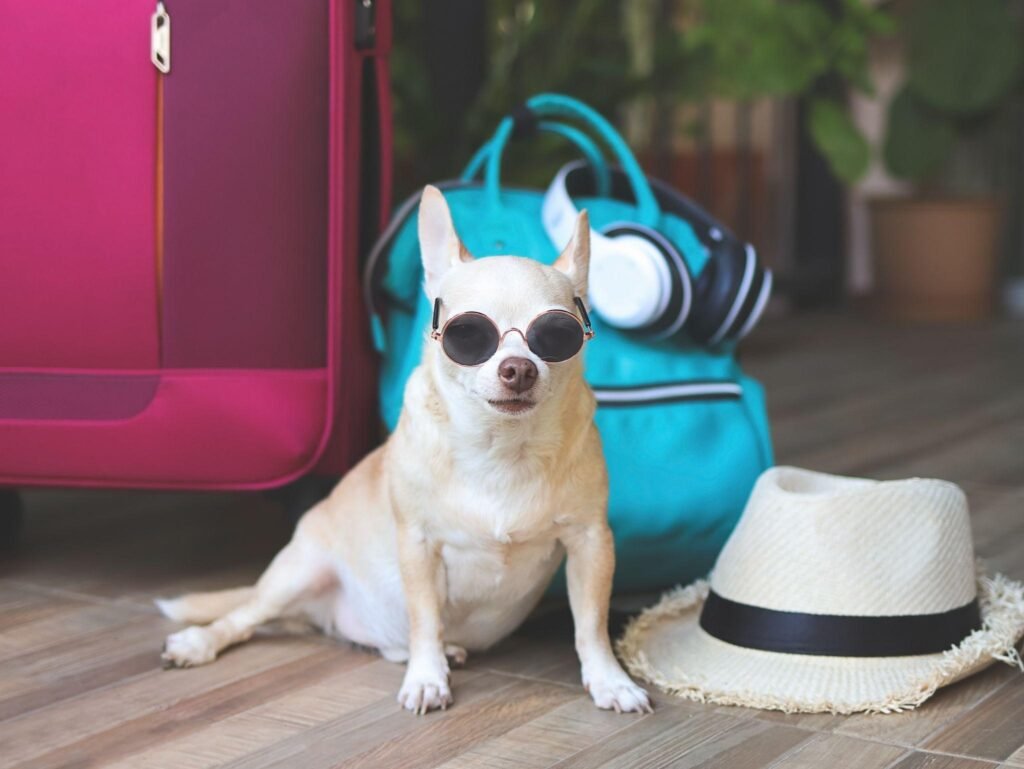
Traveling can be an exhilarating experience, and it becomes even more special when you can share it with your beloved pet. Whether you’re setting off on a road trip, flying to a distant destination, or exploring new cities, including your pet in your travel plans requires careful preparation and consideration. This guide aims to provide pet owners with essential tips and advice for traveling with both common and exotic pets.
1. Preparing for the Journey: Essentials for All Pets
Health and Safety First
- Visit the Vet: Schedule a visit to your veterinarian to ensure your pet is fit for travel and up-to-date on vaccinations.
- Identification: Ensure your pet has a microchip and wears a collar with an ID tag displaying your contact information.
- Travel Kit: Pack a travel kit for your pet, including food, water, bowls, leash, waste bags, grooming supplies, medication, and a familiar toy or blanket to comfort them.
Choosing the Right Carrier
- Size and Comfort: Select a carrier that is spacious enough for your pet to stand, turn around, and lie down comfortably.
- Familiarization: Let your pet get accustomed to the carrier at home before the trip to reduce stress.
Accommodation and Transportation
- Pet-Friendly Lodging: Research and book pet-friendly accommodations in advance.
- Travel Regulations: If traveling by air, check the airline’s pet policies, including carrier specifications and fees.
2. Road Trips with Pets
- Frequent Breaks: Stop every 2-3 hours to allow your pet to exercise and relieve themselves.
- Secure Your Pet: Use a pet seatbelt or secured carrier to ensure their safety.
- Never Leave Pets Alone in a Car: Cars can quickly heat up, posing a significant risk to your pet.
3. Flying with Pets
- Cabin vs. Cargo: Small pets can often fly in the cabin, while larger pets may need to travel in the cargo hold. Understand the risks and prepare accordingly.
- Direct Flights: Opt for direct flights to minimize stress and handling errors.
4. International Travel
- Country-Specific Regulations: Research the pet import regulations of your destination country, including quarantine requirements.
- Health Certificates: Obtain any required health certificates and documentation.
5. Traveling with Exotic Pets: Special Considerations
Understanding Exotic Pets
Exotic pets, such as reptiles, birds, or unusual mammalian companions, have unique needs that require special attention during travel.
Consult a Specialist Vet
- Health Check: Before planning your trip, consult a specialist vet who has experience with exotic pets. They can provide specific advice on how to safely transport your pet and address any health concerns.
- Travel Documentation: Some exotic pets may require special permits or documentation for travel, especially internationally.
Finding Specialist Vets at Your Destination
- Research in Advance: Identify and contact veterinary clinics at your destination that specialize in exotic pets. Having this information beforehand can be vital in case of emergencies.
Specialized Carriers and Environment
- Appropriate Carriers: Ensure the carrier is suitable for your exotic pet, providing adequate ventilation, temperature control, and space.
- Maintain a Stable Environment: Exotic pets often require a controlled environment. Portable heaters, coolers, or humidifiers might be necessary.
Feeding and Care
- Special Diets: Pack enough of your exotic pet’s specific food, as it might not be readily available at your destination.
- Routine: Try to maintain their regular feeding and care routine as much as possible to reduce stress.
In Conclusion
Traveling with pets, whether they are traditional or exotic, enriches your travel experience but also adds a layer of responsibility. By planning ahead and considering the specific needs of your pet, you can ensure a safe and enjoyable trip for both you and your animal companion. Remember, the key to a successful trip with pets is preparation, awareness, and a little extra patience. Happy travels!





